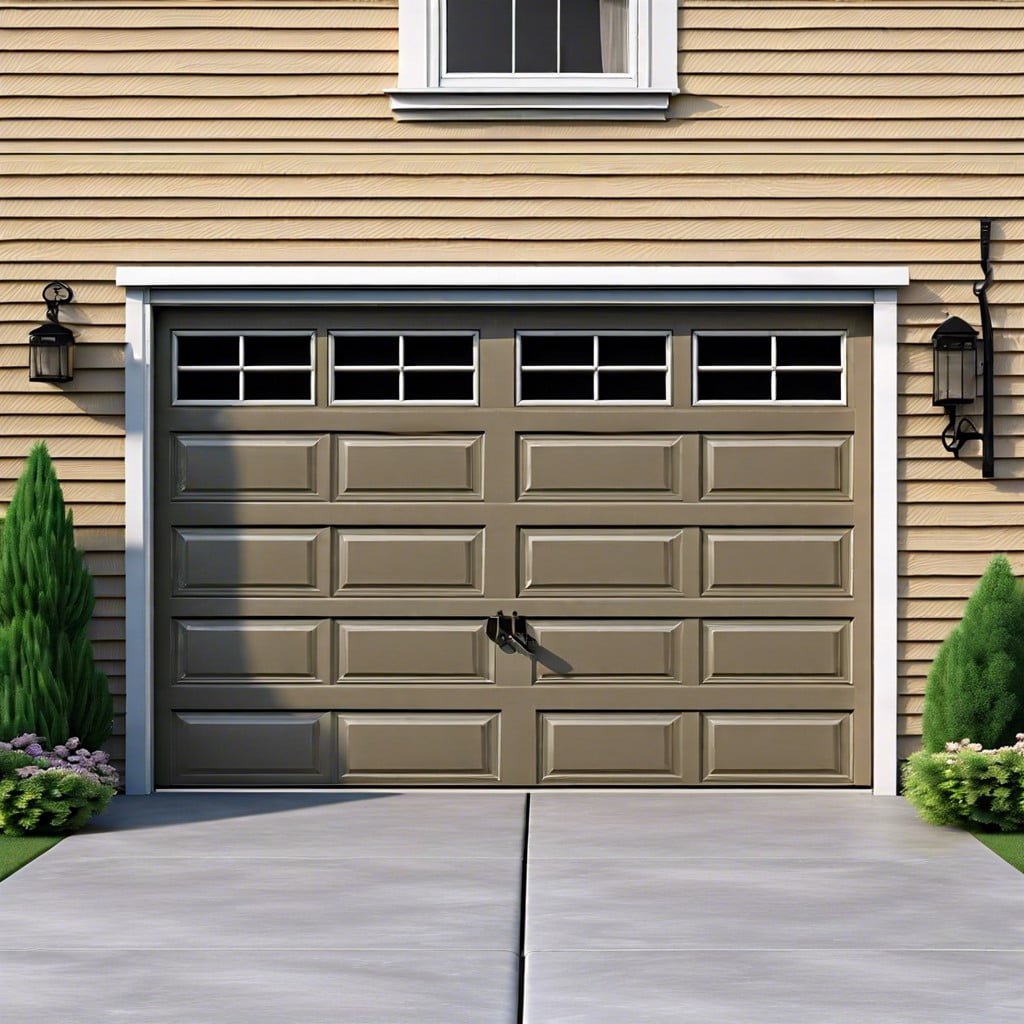Learn how to identify if your garage door spring is broken, saving you time and frustration.
Key takeaways:
- Garage door suddenly becomes heavier
- Garage door opens halfway and stops
- Loud bang in the garage
- Visible gaps or stretches in the spring
- Garage door falls down quickly
What Is a Garage Door Spring?

Garage door springs are the unsung heroes of your garage, doing the heavy lifting every time you hit that button. They’re the mechanical muscles that counterbalance the weight of the door, making it light enough to lift easily. These springs come in two main types:
Torsion Springs: Mounted horizontally above the door, they wind and unwind to open and close the garage door. Picture them like giant clock springs.
Extension Springs: Found on either side of the door, they stretch and contract to control the door’s movement. Think of them as oversized Slinkies.
Both types bear a lot of tension, which is why they can snap after years of use. And when they do, it’s like losing the biceps of your garage door.
Signs of a Broken Garage Door Spring
First on the list, you’ll notice the garage door suddenly becomes heavier. No, it hasn’t taken up weightlifting; a broken spring means the door loses its counterbalance. That’s why your Herculean efforts are now needed to lift it.
Next up, the garage door might open halfway and then promptly decide, “I’m done here,” and stops. This isn’t laziness; it’s a cry for help from a malfunctioning spring.
If you hear a loud bang in the garage and think a meteorite struck, think again. Often, that boom is the sound of a spring breaking. Time to investigate.
Lastly, visible gaps or stretches in the spring itself are like flashing neon signs saying, “I’m broken!” Take a close look—you’ll spot the gap easily if the spring has snapped.
These telltale signs help you catch a broken garage door spring before it turns your daily routine into an upper-body workout.
Balance Issues – Garage Door Falls Down
If you’ve noticed your garage door suddenly slamming shut faster than a cat on a mouse, there’s a good chance the spring may be broken. Here are some giveaway signs:
The door feels unusually heavy when you try to lift it manually. Typically, springs counterbalance the weight, making it easy to lift. Without them, you’ll feel like you’ve adopted a new gym routine.
The door doesn’t stay in the open position. If it quickly starts to close shortly after you open it, those springs are probably out of commission.
Look for gaps in the springs. Sometimes, it’s as simple as checking. If there’s a visible separation, yep, it’s broken.
When the door starts playing magician tricks with gravity, it’s time to think about spring repairs or replacements. Keep your fingers and toes safe by addressing the issue promptly.
Better safe than ‘‘squished’’!
Loud Bang Near Garage Door
Sometimes, a loud, mysterious bang near your garage door might not be a sneaky ninja breaking in. More likely, it’s your garage door spring giving up the ghost. This sound happens because garage door springs hold a tremendous amount of tension. When they break, all that built-up tension releases in one dramatic snap.
Many people mistake this sound for something more sinister or unrelated. Here’s a fun fact: this bang isn’t just for shock value. It’s a clear signal something’s gone awry.
If startled by this noise (and who wouldn’t be), inspect your garage door’s springs immediately. Look for any gaps in the coils, signs of wear, or, heaven forbid, broken pieces. Plus, try lifting the door manually. If it’s suddenly as heavy as a grand piano, you’ve got confirmation.
Remember, a loud bang near your garage isn’t about calling Ghostbusters – just a call to action. Time to inspect those springs.
Preventing Garage Door Spring Damage
Regular maintenance goes a long way. Lightly lubricating the springs with a garage door lubricant can help. Don’t overdo it. Just a light spray does wonders.
Check for wear and tear monthly. Look for rust, gaps, or any signs of weakening. Catching this early can save you a lot of trouble.
Balance test time! Disconnect the opener and manually lift the door halfway. If it stays in place, your springs are good. If it falls, you might have an issue.
Limit DIY repairs. Garage door springs handle extreme tension. When in doubt, call a professional. Future you will thank you.
Finally, don’t skip annual professional check-ups. A trained eye can spot potential problems before they spiral. Trust the experts.